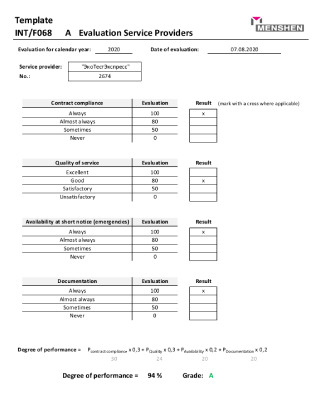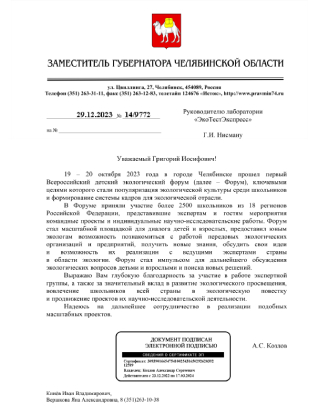- From Streaming Surge to Studio Shifts—Broadcasters Navigate a Rapidly Changing UK news Landscape and the Rise of gb news.
- The Streaming Revolution and its Impact
- The Rise of gb news: A New Voice
- Navigating Regulatory Challenges
- The Impact on Established Broadcasters
- The Future of UK News and Broadcasting
From Streaming Surge to Studio Shifts—Broadcasters Navigate a Rapidly Changing UK news Landscape and the Rise of gb news.
The United Kingdom’s media landscape is undergoing a significant transformation, driven by shifts in consumption habits and the rise of new players. Traditional broadcasters are facing unprecedented challenges from streaming services and digital platforms, forcing them to adapt and innovate. A key development in this evolving environment is the emergence of gb news, a channel positioning itself as an alternative voice in the uk news sector. This article will explore the factors contributing to these changes, the impact on established broadcasters, and the potential future of media in the UK.
The Streaming Revolution and its Impact
The rapid growth of streaming services like Netflix, Amazon Prime Video, and Disney+ has fundamentally altered how people consume content. Viewers are increasingly cutting the cord, opting for on-demand entertainment over traditional linear television. This shift has led to a decline in viewership for conventional broadcasters, impacting their advertising revenue and overall financial stability. The competition for audience attention is fiercer than ever, forcing broadcasters to invest heavily in original programming and digital platforms to remain relevant.
This isn’t merely a shift in how people watch, but also what they watch. Niche content is flourishing as streaming services cater to increasingly specific audience demographics. This fragmentation poses a considerable challenge to broadcasters who traditionally aimed for broad appeal.
| BBC | 5.73 | 5.68 | -0.87% |
| ITV | 3.57 | 3.41 | -4.48% |
| Channel 4 | 1.17 | 1.12 | -4.27% |
| Sky | 15.7 | 15.2 | -3.19% |
The Rise of gb news: A New Voice
gb news launched in June 2021, aiming to provide a fresh perspective on current affairs and challenge the perceived liberal bias of other major news outlets. The channel has quickly gained a following, particularly among viewers who feel underserved by the mainstream media. It focuses on a range of topics, including politics, culture, and current events, often featuring opinions and analysis that are not widely represented elsewhere. However, the channel has also faced criticism, with concerns raised regarding its journalistic standards and potential for spreading misinformation.
The arrival of gb news signifies a broader trend towards polarization in the media landscape. Audiences are increasingly drawn to outlets that confirm their existing beliefs, leading to echo chambers and a decline in critical thinking. The channel’s success demonstrates the demand for alternative perspectives, but also highlights the challenges of maintaining objectivity and journalistic integrity in a highly competitive environment.
- Focus on opinionated programming
- Appeal to a specific demographic
- Challenge to mainstream media narratives
- Rapid growth in viewership
- Controversies surrounding journalistic standards
Navigating Regulatory Challenges
The media landscape in the UK is heavily regulated, and broadcasters must adhere to strict rules regarding impartiality, accuracy, and fairness. Ofcom, the independent regulator, is responsible for enforcing these rules and ensuring that broadcasters meet their obligations under the Broadcasting Act 2003. gb news has faced scrutiny from Ofcom on several occasions, with investigations launched into potential breaches of impartiality rules. These challenges highlight the delicate balance between freedom of speech and the need to protect the public from harmful or misleading information.
The regulatory environment is becoming increasingly complex as new platforms emerge and the lines between traditional broadcasting and online content blur. Ofcom is currently reviewing the rules governing impartiality and fairness in the context of digital media, with proposals likely to be announced in the near future. Navigating these regulatory changes will be crucial for all broadcasters, but particularly challenging for new entrants like gb news.
Maintaining public trust is paramount. Broadcasters must prioritise accurate reporting, diverse perspectives, and responsible journalism. This is especially key during a period of heightened political tension and societal division.
The Impact on Established Broadcasters
The emergence of gb news, combined with the ongoing challenge from streaming services, has put significant pressure on established broadcasters. The BBC, ITV, and Channel 4 are all adapting their strategies in response to these changes. The BBC is focusing on delivering high-quality public service content and investing in digital platforms such as BBC iPlayer. ITV is diversifying its revenue streams, expanding its production business, and investing in new technologies. Channel 4 is exploring strategic partnerships and seeking to increase its commercial revenue.
These adaptations require significant investment and a willingness to embrace innovation. Broadcasters must also find ways to engage with younger audiences who are less likely to watch traditional television. Social media and short-form video platforms are becoming increasingly important channels for reaching these demographics.
- Increased investment in digital platforms.
- Diversification of revenue streams.
- Focus on high-quality content.
- Engagement with younger audiences.
- Strategic partnerships and collaborations.
The Future of UK News and Broadcasting
The UK media landscape is likely to continue evolving rapidly in the years to come. The rise of artificial intelligence (AI) and machine learning (ML) will have a profound impact on content creation, distribution, and consumption. AI-powered tools are already being used to automate tasks such as video editing, news summarisation, and personalised recommendations. However, concerns remain regarding the potential for AI to spread misinformation and contribute to job losses in the media industry.
Ultimately, the success of broadcasters in the future will depend on their ability to adapt to these changes, embrace innovation, and deliver high-quality content that meets the needs of a diverse and evolving audience. Maintaining trust and credibility will be more important than ever in an environment where misinformation and disinformation are rampant.
| Artificial Intelligence (AI) | Automated content creation, personalized recommendations, improved efficiency | Misinformation, job displacement, ethical concerns |
| 5G | Faster streaming, immersive experiences, enhanced connectivity | Infrastructure costs, security vulnerabilities |
| Virtual Reality (VR) | Immersive journalism, interactive storytelling | High costs, limited accessibility |
The media landscape will continue to see substantial changes as consumers engage with content in increasingly diverse ways. The evolving regulatory framework and public demand for diverse perspectives will continue to represent obstacles and opportunities. The organisations capable of adapting and keeping audiences informed will be the most successful.



















